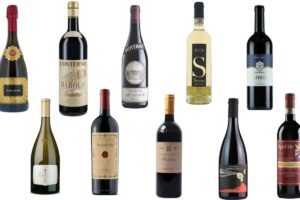The recovery in post-pandemic wine consumption, rather than the important internal dynamics of the sector, will be driven by the restart of the economies of the various countries of the world. Also because the nectar of Bacchus, which for many people is an important element of their lifestyle, and which in other realities, especially in the East, is becoming one, is and remains a luxury and unnecessary product. Despite this, now more than ever, with a liquidity crisis that affects many wineries in Italy and around the world, it is essential to understand in which markets to invest.
If it is natural that each company and each denomination has its outlets, a general orientation can be helpful, and this is what comes from the “Global Compass Wine Market Attractiveness Report” by Wine Intelligence, which puts in order the most “attractive” markets for wine, looking at economic parameters, (adult population, GDP per capita, income per capita, unemployment rate, corruption index, level of globalization) and wine market data (volumes and trends of the wine market, volumes and trends of imported wine, per capita consumption, trends, and potentials, the value of the wine market, trends and unit price, the profitability of the wine industry, accessibility of the wine industry) of the 50 countries that move the world economies. However, in this pandemic storm that has left operators with very little certainty, one of these is the United States, which remains the main market to invest in, excluding, above all, of the decisions on possible new duties on EU wines that should arrive in the next few hours. In second place rises a small market but oriented to high-end wines such as South Korea, followed on the podium by Germany, one of the most important markets in absolute, especially for the volumes absorbed. Then, again, among the top 10 markets, China, Poland, Switzerland, Denmark, the United Kingdom, France and, on a par, Canada and Russia.
Country, the latter, which returns to “top 10” thanks to the major leap forward, climbing 23 positions compared to 2019. A growth linked to the great growth in the volume of the Russian wine market accompanied also by growth in overall value, a new regulatory framework for the business in the sector, and the strong interest in wine of Russian consumers between 20 and 35 years old, explains the British agency Wine Intelligence. Italy, which sees its indicators worsen, is badly affected and drops by 7 positions, at n.24, just in front of Portugal, and behind Singapore, the Netherlands, Spain, Ireland, Romania, Belgium, Japan, Sweden, Australia, Hungary, the Czech Republic, and Austria. All this, of course, to be taken with the springs, in a very difficult scenario, since according to Wine Intelligence indicators, 32 out of 50 countries have seen their performance worsen.
Copyright © 2000/2026
Contatti: info@winenews.it
Seguici anche su Twitter: @WineNewsIt
Seguici anche su Facebook: @winenewsit
Questo articolo è tratto dall'archivio di WineNews - Tutti i diritti riservati - Copyright © 2000/2026







































































































































































































